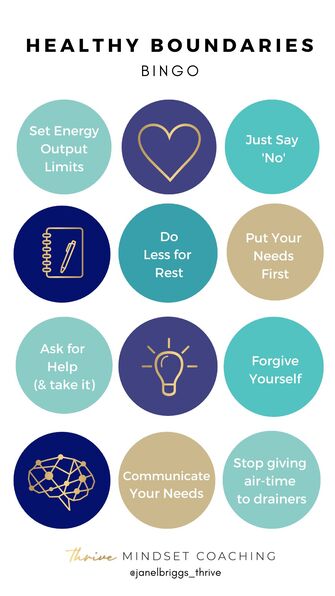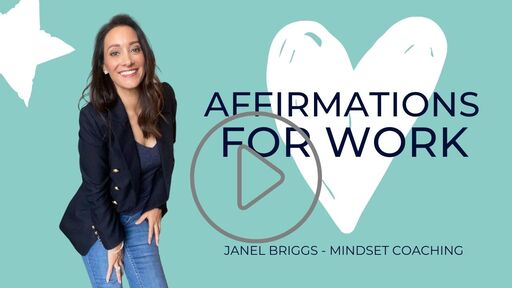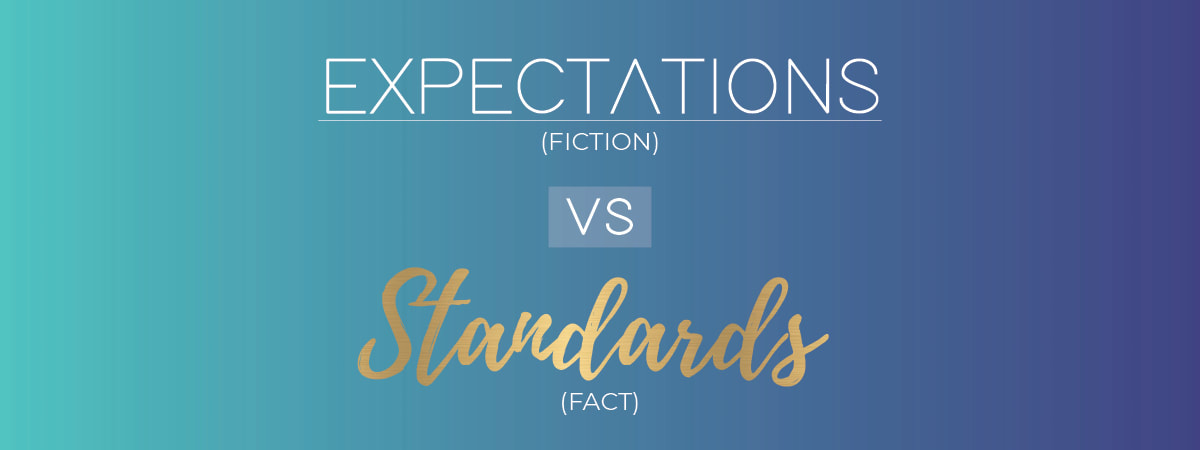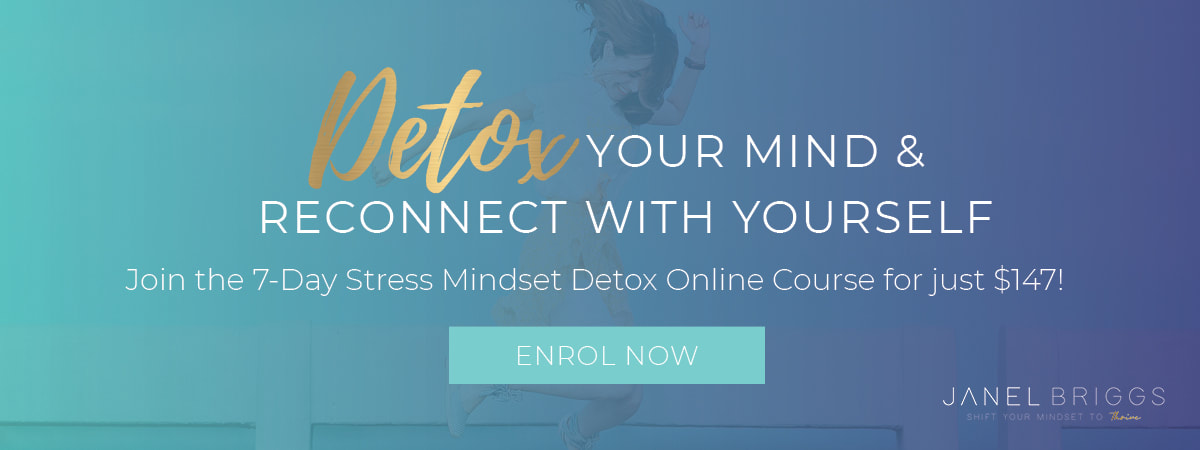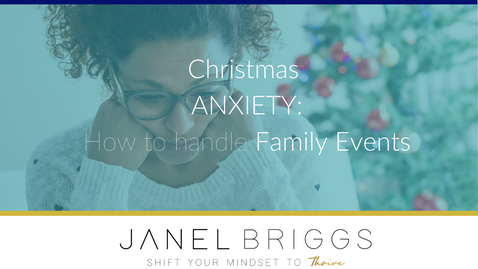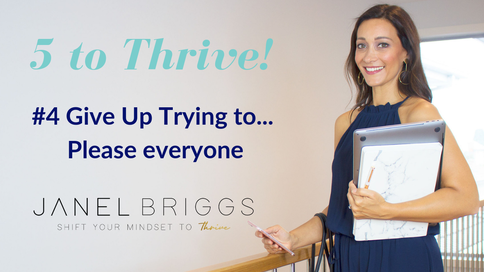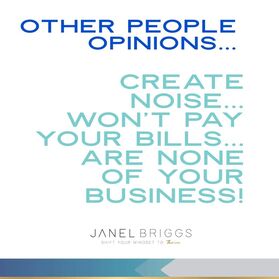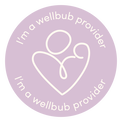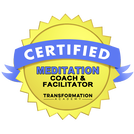AuthorJanel Briggs Categories
All
|
Back to Blog
Self-Care Doesn't Have to Be Expensive21/8/2023 In the midst of today's economic challenges, it's understandable that when things get tough, taking care of ourselves often slips to the VERY bottom of the priority list. Everyone, and everything else comes first, I get it. But I want to remind you of two important things - when life/financial/relationship/work stress is high:
Of course, day-spa's and weekend retreats, and nights out with the girls are amazing! But in truth, THE BEST self-care looks like: Setting strong & healthy boundaries around your energy and time! Boundaries are literally the decision you make to put yourself first, even when life is crazy. It's where I say: "This is the energy I will allow in/or the energy output I have capacity for right now" And if you have a tendency to be a people pleaser, have a hyper focus on external validation, or someone who NEVER puts themselves first... I've got a little "Boundaries Bingo Card" ready for you! Snapshot that bingo card and this week I would love to inspire you to choose one bubble. Make that one non-expensive thing your self-care focus for this week. And perhaps we need to take a page out of the Baby Boomer's book on the ART OF SAYING NO!Image & research credit: Thriving Centre of Psychology These stats are crazy right? 65% of women have trouble saying No! Why is it so hard to set boundaries and just say no? As the research above states it comes down to a feeling of GUILT + OBLIGATION. It's high time to flip the switch on that. "If you’re feeling boxed into doing things you don’t want to do, don’t continue the cycle. Now more than ever is the time to prioritize your mental health and your happiness. At the end of the day, that’s what is most important!" - Thriving Centre of Psychology Recently coming off a 7 week summer school break for my son here in Singapore (with a lack of affordable school holiday programs) I was chatting to another Mum about how we've coped. She said "Wow, you've got strong boundaries!" I said yes absolutely. I've hit burnout enough times(!) to learn what I need to operate at my best, and now I honour that. These are some of the self-care habits that I stick to. Self-Care habits (without the price expensive tag):
Remember, you're worth every effort you invest in yourself. Life is always going to be busy, and I know you probably don't have the time, energy, or resources right now for self-care. But if you don't put yourself on the priority list now... who else will? Any comments or questions, please reach out.  About the Author: Janel Briggs is a NLP and Timeline Therapy Practitioner on a mission to support women across Australia and Singapore in healing their professional anxieties, insecurities and imposter syndrome to build unwavering confidence and self-belief. The goal is to level up your life and career by learning how to to live fearless and anxiety free! Connect with Janel on social media via Linkedin or Instagram.
0 Comments
read more
Back to Blog
Holidays are supposed to be a time for joy and celebration. But for many people, the holidays can also be stressful and anxiety-inducing. The good news is that there are plenty of things you can do to manage your holiday stress and anxiety, so it doesn't prevent you from enjoying yourself with family and friends! 1. Keep Your Regular Routine Holiday stress can take over your life pretty easily, and if you're not careful, it can send you into an anxiety spin as we set aside all the good habits and things we know are good for us, while making time for the increased work and social commitments. Don't let the “busy” of the holidays season send you off-course though, your habits are what will keep you GROUNDED in the chaos. Keep up with your regular routine as much as possible. If you're used to going for a walk or exercising a few times a week, find a way to protect that “you time” at all costs. We always have to say no to something, don’t let it be the things you fill your energy cup with. And if you want to know how to stay feeling calm and more relaxed - on Christmas morning while everyone else sleeps in, get up early and go for a walk or run outside to clear your mind before the big day! 2. Practice Self-Care When it comes to self-care, there's no one size fits all approach. Be kind to yourself and listen to your body. If your calendar looks manic with events, block at least 1 or 2 nights at home with NO plans so you can pre-plan some downtime (you’ll thank me for it later!). Take time for yourself, eat well, and prioritise getting enough sleep—these things will help you feel more rested and energised during these hectic weeks leading up to end of year. Self-care is also being aware of mentally what you are consuming. If you find yourself staying up late watching TV to “zone out” just do yourself a favour and GO TO BED. Sleep is so much better for you than Netflix. Or if scrolling social media seeing everyone else’s perfectly curated Christmas tree’s and happy family snaps is making you anxious (or just plain sad and overwhelmed), consider taking a break socials. Wouldn’t it be amazing to hit the finish line well rested and some mental capacity to enjoy the festivities? 3. Make a Plan and Stay Flexible If you are a natural planner and organiser that’s great, my suggestion then is to stay flexible. Rigid black and white thinking and “only one way to do this” mentality has caused many a family argument during the holidays. If you can be flexible in your approach to everything, then you will be less likely to get stressed out by the things that come up. Aunty Janice could be right, she could well have the stuffing recipe out there – it doesn’t mean yours is any less - you of course could be right too. There are always multiple ways of doing a single thing. The person with the most flexibility in this situation is going to be the master of their own emotions and have the most fun. Who wants to be held back in judgement about something a simple as a stuffing recipe?! Not me. Janice – do your thing. 4. Don't Be Afraid to Say "No" You probably like to get involved in everything; you may even have FOMO at times when you don’t have a finger in every pie. But setting healthy boundaries for your time is VERY important at this time of year. We do not want to take any held resentments into the new year! So, don't let others pressure you into doing things you don't want to do. It is not your job to be everywhere at once and make everyone happy. Saying no is necessary and healthy! If you're feeling overwhelmed by all the holiday activities on your plate, then ask for help or simply decline an invitation altogether. It's okay, people can respect your decisions just as much as they expect others will respect theirs. 5. Delegate Like a Boss If you’re feeling overwhelmed, then it’s time to delegate. You do not have to do it all. Remember the saying “Many hands make light work”. People also actually like to help and feel needed, so delegate. Get everyone involved so you don’t feel overburdened by the work that needs to get done. Everyone knows you can do it all, but you may kill every last bit of energy you have in the process! 6. Let it Be If you find yourself stuck worrying and pre-empting about all the WHAT IFs of Christmas Day or holiday parties - who’s coming, whether everyone will get along, who will drink to much, or say too much, or start a difficult conversation. This thought process will only ever bring you stress and anxiety, as you cannot control the outcomes of other people. Let it be. What is going to happen will happen, no matter whether you spend 25 days worrying about what will happen. Instead, perhaps think about why you are spending time with the people who are important to you and what the highlights of this holiday season are going to be. And make a game plan, if something does go pear shaped at any event you can take some time out for yourself—go for a walk or listen to some music to regroup. 7. Focus on Gratitude One of the most effective ways to manage holiday anxiety is to focus on gratitude. By being grateful for what you already have, it helps your mind stay in the present moment instead of way out to far in the future stuck on worry. You will start feeling less stressed about things that don't matter. Gratitude helps you appreciate the good things in your life, so it's a great way of getting into a more positive mindset. Once you make it a habit, it'll become second nature and help you feel less stressed through any situation—even if something stressful does happen! 8. Know the Things You Can Control You can control your energy level, how much sleep you get, what you are eating and drinking, your mindset, your time and your own personal happiness. You cannot control anyone else, and you are also not 100% responsible for everyone else’s happiness. When things seem out of control, reassess and reassure yourself that you are doing your best and that this is enough. If it turns out that something did not go perfectly, then accept it and release it! 9. Remember to Have Fun Let the stress go and remember the holidays are for you to have fun too. Everything will get done that needs to get done. Connect, be present in the little moments and enjoy it. You deserve it, its been a big few years. What is it all for, if it’s not for having fun with the people we love? 10. Ask for Help Finally, don't be afraid to ask for help if you need it. If it’s not fun and everything is too much then please know you don’t have to go through this stress alone. Reach out to a friend, a family member or a professional for support. You deserve much love, peace and joy this time of year :) Wishing you all the best Janel Briggs  About the Author: Janel Briggs is a NLP and Timeline Therapy Practitioner on a mission to support women across Australia and Singapore in healing their professional anxieties, insecurities and imposter syndrome to build unwavering confidence and self-belief. The goal is to level up your life and career by learning how to to live fearless and anxiety free! Connect with Janel on social media via Linkedin or Instagram.
Back to Blog
 We all have limiting beliefs. They’re those pesky, damaging, and deeply ingrained thoughts that’ve been there for years. So long in fact that we’ve become convinced that they must be true. They’re not. Trust me. I’ve been there and come out the other side and want you too as well. So what are limiting beliefs? Where did them come from? And how can we get rid of them? Limiting beliefs reach across all aspects of your life. They’re thoughts or opinions that negatively impact your relationships, growth, and moving forward. They’re the little (or loud) voice saying… I’m not good enough, smart enough, pretty enough. I’m too loud, too much, too clumsy. I don’t deserve this. I could never do that. I know I’m going to fail. During my study of timeline therapy and Neuro Linguistics Programming (NLP) coaching certification, I came to understand, and now coach, that most of our core beliefs, or how we feel or what we think about ourselves, are language patterns and programming from childhood. They’re developed when we’re young from a particular moment (or moments) in time. Influenced by family, friends, culture, school, or society in general, someone said something, or you overheard something and, for better or for worse, you decided (consciously or unconsciously) to take on their opinion or label and carry it as your own. As your truth. You start believing what you heard. And over the months, years, and decades, the words become ingrained “truths” and limiting beliefs that end up adversely effecting and impacting your confidence, self-esteem, and self-belief. And as we humans tend to do, we remember these negatives much more than the positives, making so much easier to believe these un-truths. So now that we’ve talked about what limiting beliefs are and where they come from, let’s talk about two ways STOP and reverse these thought and beliefs about yourself. AFFIRM\NATIONS
Affirmation are essential in countering decades of negative programming, self-talk, and limiting beliefs. The three steps to using affirmations are personalisation, repetition, and trust. Personalisation Make sure your affirmations are specific and personalised to you. Start each statement with “I am…” and make sure they are ALWAYS positive. No won’ts, don’ts, or I’ll try’s. Think “I am brave” or “I am courageous”, not “I wish I was brave” or “I want to be courageous”. Repetition Repeat, repeat, repeat. Write your affirmation in your journal (you can get mine here). Record and listen to them on your phone. Put sticky notes up around your home. Write, read, and hear them often. Use the same affirmations day in and day out until you truly feel and believe each statement. Trust As difficult (and strange) as it might seem, you really do need to trust the affirmation process. While it won’t happen overnight, repeating your statements focuses the forces of energy to bring light to your desired result. Trust and believe good is coming your way and see the magic unfold. To help you get started, or continue on your affirmation journey, visit my website to download my free 150 Positive Affirmations list. DEEP (GUIDED) WORK While affirmations help you move forward, actually getting rid of limiting beliefs often takes deeper work. The key to this deep work however is doing it with guidance. Trying to “do the work” without guidance can be difficult, frustrating, and potentially upsetting. By having a safe space to discover your underlying limiting beliefs and be guided through a process to transform these into empowering new beliefs you become your own “inner mentor”, confident and able to go forward. So you’re not alone in the deeper work, I run a small and intimate “Silencing Your Inner Critic” group workshop every month. Together over zoom we work together for 2 hours from the comfort of your own home on:
Limiting beliefs are just that, limiting. While they’re familiar and known, they also tend to keep us surviving and not thriving. They keep us stuck in the past unable to make real progress forwards. Instead let’s get you thriving. Let’s get you working on reprograming your beliefs. Let me help you build unwavering self-belief and get rid of your limiting beliefs. If you haven’t already, be sure to subscribe to my blog and YouTube channel. Download your free 150 Positive Affirmation List or get on the wait list for my next Silencing Your Inner Critic online workshop so we can do the deep work together.
Back to Blog
Almost half of those said they worked nearly TWICE as many late hours than the previous year.
And the number of hours spent working overtime? For many it went from 236 hours to a staggering 436 hours in one year. No wonder we’re all so burnt out! In my own work, many women and clients I’ve spoken to said this year has felt like one big emotional hangover, which often leads to… burnout. And the similarities I’ve been noticing? Emotional exhaustion + mental load = burnout Emotional Exhaustion Emotional exhaustion is the most common experience of burnout women feel and that I’ve seen with my clients during the last year and half. Whether it’s total exhaustion from the weight of conflicting, overwhelming, and repetitive emotions or the prolonged feelings of exhaustion, frustration, fear, worry, loss, sadness, anger, resentment, and even guilt, we’ve all been feeling it. The constant changes and adaptations. The cycles of change with feelings of little control over our lives. They all take an emotional toll. They all lead to emotional exhaustion often followed by burnout. Carrying the Mental Load The mental load we carry is not often as obvious as emotional exhaustion. But you know all those thoughts constantly swirling in our minds? The processing, analysing, overthinking? The monkey chatter and second-guessing? The doubts and fears? Well, this is carrying (and often being consumed by) the mental load. The mental load of our thoughts, worries, fears, and the stress that come from these patterns of repetitive (and often negative) thoughts. Of future pacing and staying five steps ahead. And then there’s the over-analysing… Have I done enough? Is there more I should be doing? Something I should’ve done? Something I shouldn’t? The reality of carrying these constant thoughts and beliefs is that is becomes overbearing, overwhelming, and exhausting. The mental load wears us down and leads us to burn out. How could it not? Making Changes Even after we’ve recognised our emotional exhaustion and mental load and made some changes, we often still FEEL burnt out. Confusing right? See when we experience chronic stress these feelings can trigger negative thought, emotions, beliefs, and patterns which often triggers our bodies’ stress response. So even if you’ve eliminated or eased the stresses and know things have changed your body never actually got the memo that everything’s ok. It doesn’t know you’re in a good place. You’re out of lockdown. You’ve changed jobs. It doesn’t know you’re ok. It doesn’t know you’re safe. Essentially what this means is that removing the stress doesn’t fully move you through burnout. Instead it’s your behaviours. Your behaviours tell your body things have changed and it’s ok to relax. This is why when you think, “I’m over that now.”, and can’t work out why you still feel so exhausted it’s because you’ve made changes to your external environment but not your internal habits and behaviours. You need to signal your body that you ARE safe. The danger IS over. You need to allow your body to process through the emotions, because if you don’t, you’ll likely stay in an emotionally burnout state being triggered time and time again. But, nothing changes if nothing changes right? Here are three steps you can start today to release the emotional exhaustion and lighten the mental load that can lead to burnout.
Emotional exhaustion and carrying the mental load are real. And remember, there are strategies and practices to assist, and I’m always here to help whether through my YouTube channel, blogs, or programs.
Back to Blog
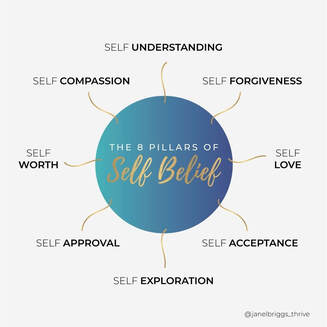 I had a client recently, who was struggling with imposter syndrome, can you relate? My client felt like she wasn't good enough for this role and her confidence had taken a hit after some disappointing feedback from a Manager she really liked. To be honest, her self-belief pillars were totally shaken. We worked through a short coaching program to rebuild her confidence by reconnecting her to the 8 underlying pillars of self-belief. Step 1 - We explored her genius zone, the way in which she does her best work, accepting and understanding her strengths and weaknesses The secret here is to list your strengths and weaknesses, and map it across to your work.
Step 2 - We outlined her values and she did a road map of her past career achievement, while redefining what her model of success looked like. The secret here is to identify what qualities are most important to you.
Step 3 - We explored her fears and found the root cause of it all was actually that she was frightfully scared of failure. We did a release technique in time line therapy to bust through her fear and we met it with forgiveness and acceptance. The secret here is to follow the fear.
Next, I suggested she use 5 x positive affirmations to help build confidence at work. A free tool anyone can use and start today. After just one session of getting really clear on who she was and what she wanted she saw her confidence start to return and her work anxiety lessen. That is the power of the mind! Ps. If you want to learn more about the 4-session coaching program I talk about in this blog you'll find it here -> CAREER MINDSET RESET
Back to Blog
Do you have high EXPECTATIONS OF PEOPLE in your life? |
|
Stay Connected
Subscribe and be the first to access new blog content news & updates. |

 RSS Feed
RSS Feed
